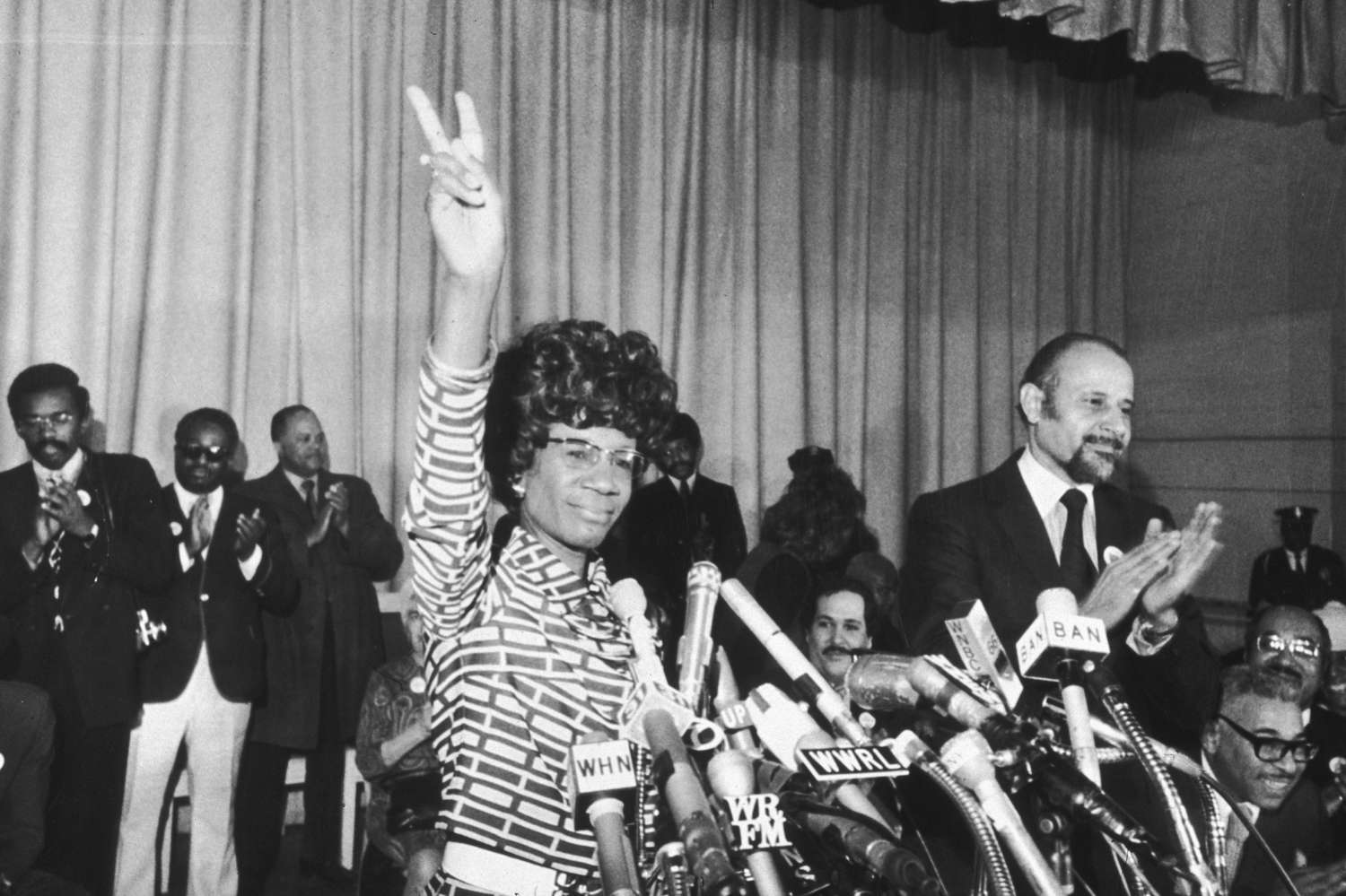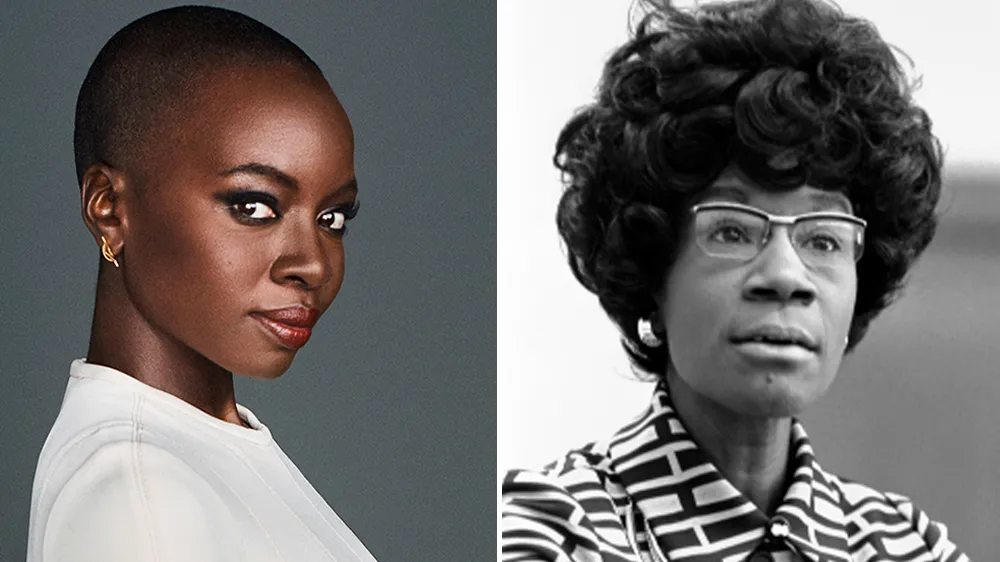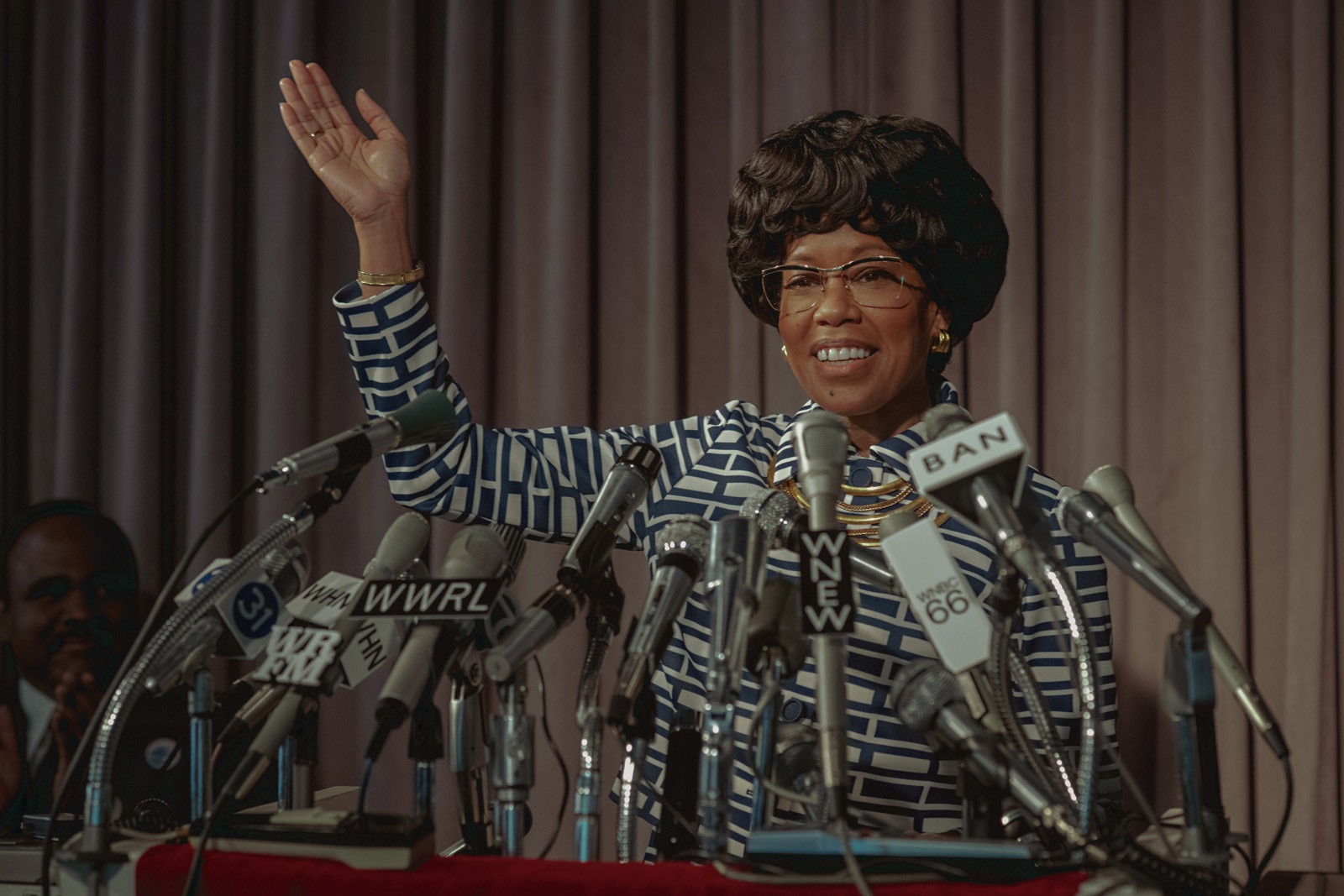Shirley Chisholm was a trailblazing figure in American politics, breaking barriers as the first Black woman elected to the United States Congress and later becoming the first Black candidate to seek a major party’s nomination for President of the United States. Throughout her life, Chisholm’s unwavering commitment to equality, justice, and representation left an indelible mark on the political landscape of the United States. In this article, we delve into the life and legacy of Shirley Chisholm, highlighting her achievements, challenges, and enduring impact.

Early Life and Education Shirley Chisholm:
Shirley Anita St. Hill was born on November 30, 1924, in Brooklyn, New York, to immigrant parents from Barbados and Guyana. Growing up in a working-class neighborhood, she faced both racial and gender discrimination from a young age. Despite these obstacles, Chisholm excelled academically and graduated cum laude from Brooklyn College in 1946. She later earned a Master’s degree in elementary education from Columbia University.
Entry into Politics:
Chisholm’s political career began in the 1960s when she was elected to the New York State Assembly, becoming the second African American woman to serve in the state legislature. In 1968, she made history by winning a seat in the United States House of Representatives, representing New York’s 12th Congressional District. During her seven terms in Congress, Chisholm advocated for education, healthcare, and social welfare programs, earning a reputation as a fearless and outspoken champion for the marginalized and underserved.
Presidential Campaign:
In 1972, Shirley Chisholm made history once again by announcing her candidacy for the Democratic Party’s presidential nomination, becoming the first Black woman from a major political party to seek the presidency. Despite facing significant obstacles and discrimination, Chisholm’s campaign garnered widespread support and inspired a new generation of activists and leaders. Although she did not win the nomination, her groundbreaking campaign paved the way for future generations of women and people of color in politics.
Legacy and Impact:
Shirley Chisholm’s legacy extends far beyond her political career. Throughout her life, she challenged the status quo and fought tirelessly for equality and justice for all. Her groundbreaking achievements shattered stereotypes and inspired millions of people around the world. Chisholm’s commitment to representation and empowerment continues to resonate today, serving as a beacon of hope and inspiration for future generations of leaders and activists.
Shirley Chisholm’s life and legacy serve as a powerful reminder of the importance of courage, resilience, and determination in the face of adversity. As a trailblazer in American politics, she paved the way for future generations of women and people of color to pursue their dreams and make their voices heard. Shirley Chisholm’s impact on American society and politics will continue to be felt for generations to come, ensuring that her legacy endures as a symbol of progress, equality, and justice for all.
Exploring the Strengths and Weaknesses of Shirley Chisholm
Shirley Chisholm, a pioneering figure in American politics, left an indelible mark on the landscape of equality, representation, and advocacy. Throughout her remarkable career, she displayed both strengths and weaknesses that shaped her legacy. In this article, we delve into the strengths and weaknesses of Shirley Chisholm, examining her contributions, challenges, and enduring impact.

Shirley Chisholm
Strengths Shirley Chisholm:
- Trailblazing Leadership: Shirley Chisholm’s greatest strength lay in her trailblazing leadership. As the first Black woman elected to Congress and the first Black candidate to seek a major party’s presidential nomination. She shattered barriers and inspired generations of marginalized communities to pursue political leadership.
- Courageous Advocacy: Chisholm’s fearless advocacy for civil rights, women’s rights, and social justice defined her political career. She fearlessly spoke out against discrimination and inequality. Championing policies that aimed to uplift marginalized communities and promote equality for all.
- Empowering Representation: Throughout her tenure in Congress, Chisholm prioritized empowering underrepresented voices and communities. She fought to amplify the concerns of women, people of color, and low-income individuals. Advocating for policies that addressed their unique needs and challenges.
- Inspiring Legacy: Shirley Chisholm’s enduring legacy continues to inspire millions of people around the world. Her trailblazing achievements paved the way for future generations of women and people of color in politics. Leaving a lasting impact on American society and the global struggle for equality.
Weaknesses Shirley Chisholm:
- Limited Electoral Success: Despite her groundbreaking candidacy for the Democratic presidential nomination in 1972. Shirley Chisholm faced significant challenges in gaining widespread electoral support. Her campaign ultimately fell short of securing the nomination. Highlighting the persistent barriers faced by women and people of color in American politics.
- Political Isolation: Chisholm often found herself isolated within the political establishment, facing resistance and marginalization from both Democrats and Republicans. Her outspoken advocacy and unwillingness to compromise on her principles sometimes alienated potential allies. Limiting her effectiveness in advancing her legislative agenda.
- Institutional Constraints: As a Black woman in a predominantly white and male-dominated political system, Shirley Chisholm faced institutional barriers and entrenched prejudices that hindered her ability to enact meaningful change. Despite her efforts, many of her proposed legislative initiatives faced opposition and were ultimately blocked by more powerful interests.
- Underestimation and Stereotyping: Throughout her career, Shirley Chisholm often faced underestimation and stereotyping based on her race and gender. She had to contend with persistent stereotypes and prejudices that undermined her credibility and effectiveness as a leader, forcing her to work twice as hard to prove herself in a hostile political environment.
The Origins of Shirley Chisholm: Tracing the Roots of a Political Pioneer
Shirley Chisholm, a prominent figure in American politics, was born on November 30, 1924, in Brooklyn, New York. Her journey from humble beginnings to becoming the first Black woman elected to the United States Congress is a testament to her resilience. Determination, and commitment to social justice. In this article, we explore the origins of Shirley Chisholm, tracing her early life and the factors that shaped her remarkable path to leadership.

Shirley Chisholm
Early Life in Brooklyn:
Shirley Anita St. Hill, later known as Shirley Chisholm lunatogel, was the daughter of immigrant parents from Barbados and Guyana. Growing up in the Bedford-Stuyvesant neighborhood of Brooklyn, she experienced firsthand the challenges of racial and economic inequality. Despite facing discrimination and hardship, Chisholm’s parents instilled in her a strong sense of pride, resilience, and determination to succeed.
Education and Activism:
Chisholm’s pursuit of education became a cornerstone of her journey towards activism and leadership. She excelled academically, graduating from Brooklyn College with honors in 1946. Inspired by her experiences and fueled by a desire to create change. Chisholm became involved in grassroots activism and community organizing, advocating for racial and gender equality in her local community.
Entry into Politics:
In the 1960s, Shirley Chisholm’s activism paved the way for her entry into politics. In 1964, she was elected to the New York State Assembly. Becoming the second African American woman to serve in the state legislature. Her tenure in the Assembly was marked by her fierce advocacy for education, childcare, and social welfare programs. Earning her a reputation as a progressive and outspoken voice for the marginalized and underserved.
Historic Congressional Career:
In 1968, Shirley Chisholm made history once again by winning a seat in the United States House of Representatives. Representing New York’s 12th Congressional District. As the first Black woman elected to Congress, she faced immense pressure and scrutiny, but she remained undeterred in her commitment to championing the rights of women, minorities, and the poor.
Presidential Campaign and Legacy:
In 1972, Shirley Chisholm made headlines around the world when she became the first Black candidate to seek the presidential nomination of a major political party. Despite facing significant challenges and obstacles, her historic campaign inspired millions of Americans and paved the way for future generations of women and people of color in politics.
Conclusion Shirley Chisholm:
Shirley Chisholm’s journey from Brooklyn to the halls of Congress is a testament to the power of determination, resilience, and the pursuit of justice. Her legacy as a trailblazer and advocate for equality continues to inspire generations of leaders and activists around the world. As we reflect on her origins and remarkable achievements. We honor Shirley Chisholm’s enduring legacy and commitment to creating a more just and equitable society for all.
Read More Article About “Jayden Daniels’ Phenomenal Ascent to Football Greatness“



